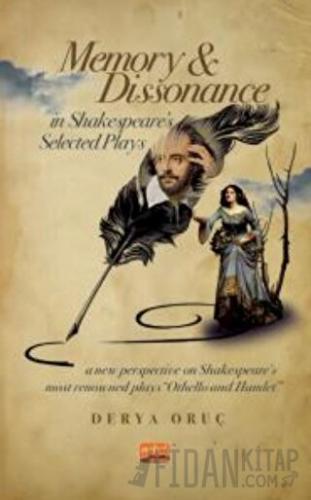
In Memory and Dissonance in Shakespeares Selected Plays Derya Oruç draws on Endel Tulving’s episodic memory and Leon Festinger’s cognitive dissonance theories to apply a new perspective on Shakespeare’s most renowned plays Othello and Hamlet. She argues that several moments of indecisiveness through the process of decision-making are connected to the individual experiences of memory that are either from the past or concerned with future thinking.
Shakespeare’s protagonists Hamlet and Othello’s hesitant nature reveal inconsistencies that contrast with their accepted personas in the plays. While Hamlet’s constant conflict of ‘taking action’ and ‘ceasing to take action’ forms the basis of cognitive dissonance instances that are connected to his episodic memories, Othello’s cognitive dissonance
in connection to the racist ideology that was imposed upon him since childhood, surfaces with his marriage to Desdemona.. a Venetian senator’s daughter.
In Memory and Dissonance in Shakespeares Selected Plays Derya Oruç draws on Endel Tulving’s episodic memory and Leon Festinger’s cognitive dissonance theories to apply a new perspective on Shakespeare’s most renowned plays Othello and Hamlet. She argues that several moments of indecisiveness through the process of decision-making are connected to the individual experiences of memory that are either from the past or concerned with future thinking.
Shakespeare’s protagonists Hamlet and Othello’s hesitant nature reveal inconsistencies that contrast with their accepted personas in the plays. While Hamlet’s constant conflict of ‘taking action’ and ‘ceasing to take action’ forms the basis of cognitive dissonance instances that are connected to his episodic memories, Othello’s cognitive dissonance
in connection to the racist ideology that was imposed upon him since childhood, surfaces with his marriage to Desdemona.. a Venetian senator’s daughter.











